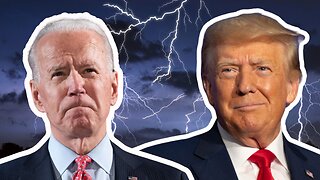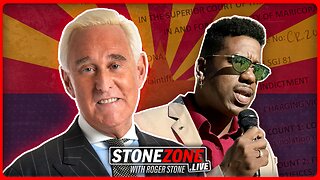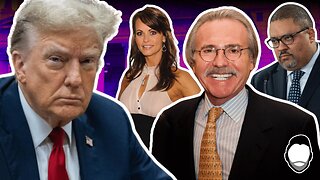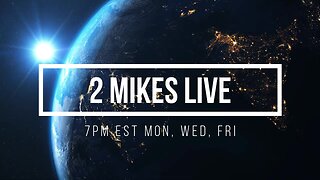The Hidden Hand | Merchants of the Earth | Freedom Series Episode II
Joshua Lehman discusses the Hidden Hand:
The Money Changers
The Bank of North America (BNA) was the first national bank, chartered May 26th, 1781 by Congress.
BNA was the template for the federal Bank of the United States, chartered by Congress in 1791 at the urging of Alexander Hamilton (one main reason for Jefferson’s disdain of him), and ended its charter in 1811.
Five years later, in 1816, the Second Bank of the United States was chartered by Congress.
As President, Andrew Jackson, vetoed the early renewal of the bank’s charter in 1832, as he was opposed to the central bank system, understanding its dangers to the People of the Nation.
On January 30th, 1835, a failed assassination attempt was made on Andrew Jackson, where two pistols misfired...
…and by 1836 all the Second Bank’s funds had been transferred to state banks.
In 1837, President Jackson stated:
“Have designs already been formed to sever the Union?
…Mutual suspicions and reproaches may in time create mutual hostility, and artful and designing men will always be found who are ready to foment these fatal divisions and to inflame the natural jealousies of different sections of the country. The history of the world is full of such examples, and especially the history of republics.
This great and glorious Republic would soon be broken into a multitude of petty States, without commerce, without credit…loaded with taxes to pay armies…trampled upon by the nations of Europe.”
Abraham Lincoln elected President and evaded assassins in Baltimore in February 1861, on his way to his inauguration.
Abraham Lincoln enters office March 4th, 1861.
March 27th, 1861, 7 States walk out of Congress, breaking quorum and the De Jure Congress Adjourns Sine Die (without a date to return).
April 12th, Fort Sumter was attacked – Civil War begins
Harper’s Weekly
“Deeming that the present condition of public affairs presents an extraordinary occasion, I do, hereby, in virtue of the power in me vested by the Constitution, convene both Houses of Congress. The Senators and Representatives are therefore summoned to assemble at their respective chambers at twelve o'clock, noon, on Thursday, the fourth day of July next, then and there to consider and determine such measures as, in their wisdom, the public safety and interest may seem to demand.
In witness whereof, I have hereunto set my hand, and caused the seal of the United States to be affixed.
Done at the City of Washington, this fifteenth day of April, in the year of our Lord one thousand eight hundred and sixty-one, and of the independence of the United States the eighty-fifth.”
-President Lincoln [April 15th, 1861]
Britain moved 11k troops to the northern border of US in Canada.
France invaded Mexico.
“I know of absolute certainty that the division of the United States into two federations of equal force was decided long before the Civil War by the high financial powers of Europe. These bankers were afraid that the United States, if they remained as one block and were to develop as one nation, would attain economic and financial independence, which would upset…domination of Europe over the world.”
-1876, Otto von Bismarck, Chancellor of Germany
France & Britain were ready to fight over the scraps left over from what the central bankers had instigated in our Civil War
Lincoln went to American banks for help - loans offered as high as 36% interest
Lincoln institutes Greenbacks (US notes)
1862-1865 $450mil
Surrender of Lee to Grant…
Just 5 days later, Lincoln was assassinated by John Wilkes Booth, a mercenary hired by the international bankers.
The hard times which occurred after the Civil War could have been avoided if the Greenback legislation had continued as President Lincoln had intended.
Instead, there were a series of ‘money panics’ – what we call ‘recessions’ – which put pressure on Congress to enact legislation the place the banking system under centralized control.”
(The Truth in Money Book, 1980, p.123-4)
That legislation was the Contraction Act of 1866
Then the Reconstruction Acts of 1867-68
The Organic Act of 1871 – the institution of the United States Corporation as the new government, overlaying the true Republic.
1872, Ernest Seyd implicated in a scandal of bribing members of Congress to demonetize silver in favor of gold because all the bankers held the lion’s share and it could be manipulated, once again.
Coinage Act of 1873, aka, the “Crime of 1873”
Resumption Act of 1875
It is advisable to do all in your power to sustain such prominent daily and weekly newspapers, especially the Agricultural and Religious Press, as will oppose the greenback issue of paper money…
To repeal the Act creating bank notes, or to restore to circulation the government issue of money will be to provide the people with money and will therefore seriously affect our individual profits as bankers and lenders…
See your congressman at once and engage him to support our interests that we may control legislation.”
-1877, letter by James Buel, Secretary American Bankers’ Association
Banking and Currency and the Money Trust, 1913, p. 105, by Congressman Charles August Lindbergh (R-MN)
Greenback Political campaigns emerged in 1878
James Garfield elected President in 1880.
Sworn in March 4th, 1881.
Shortly after stated:
“Whoever controls the volume of money in any country is absolute master of all industry & commerce…and when you realize that the entire system is very easily controlled, one way or another, by a few powerful men at the top, you will not have to be told how periods of inflation and depression originate.”
Garfield was assassinated September 19th, 1881, six months into his presidency.
"On Sept 1st, 1894, we will not renew our loans under any consideration. On Sept 1st we will demand our money. We will foreclose and become mortgagees in possession. We can take two-thirds of the farms west of the Mississippi, and thousands of them east of the Mississippi as well, at our own price... Then the farmers will become tenants as in England..."
— 1891 American Bankers Association as printed in the Congressional Record of April 29, 1913
The financial depression worsened after the Panic of 1893 when European investors demanded repayment only in gold, greatly depleting the U.S. gold reserves – causing panic selling.
1896 elections:
William Jennings Bryan (free silver issue) vs. William McKinley
Cross of Gold speech.
Jennings populist movement staved off the bankers until the Federal Reserve Act of 1913
“The Federal Reserve definitely caused the great depression….”
- Milton Friedman (watch video)
Executive Order 6102
Social Security Act
Total end of the gold standard
-
 2:22:14
2:22:14
Fresh and Fit
5 hours agoFresh&Fit Live Event w/ Special Guests
130K392 -
 1:07:38
1:07:38
Talk Nerdy 2 Us
2 hours agoDigital Defense Alert: Navigating the ArcaneDoor Intrusion & Special Guest, CEO of HowTube
7.92K1 -
 12:01
12:01
DepressedGinger
2 hours ago*REALISTIC* 2024 Election Scenario Revealed via Polling Update
11.3K7 -
 32:09
32:09
Alexis Wilkins
7 hours agoBetween the Headlines with Alexis Wilkins: TN Student Protest, UNION, Capital Gains, Climate Corps
16.5K15 -
 1:10:34
1:10:34
Kim Iversen
9 hours agoThe Border Crisis is Being Used to Push Digital ID | Whitney Webb
44.8K114 -
 1:01:12
1:01:12
The StoneZONE with Roger Stone
8 hours agoMore Phony Indictments! This Time in Arizona—GOP Strategist RC Maxwell Breaks it Down—The StoneZONE
26.7K6 -
 49:51
49:51
The Nima Yamini Show
5 hours agoHow He Went From ZERO to SUCCESS
30.7K7 -
 1:28:39
1:28:39
Robert Gouveia
6 hours agoBragg's Witnesses FLOUNDER under Cross-Examination in Trial Day 8
42.9K54 -
 1:23:46
1:23:46
2 MIKES LIVE
11 hours ago#58 2ML Open Mike Friday where we break down the news with you!
32.9K3 -
 44:37
44:37
The Amber May Show
1 day agoThe Destruction Of America | America Is At War
39.7K10